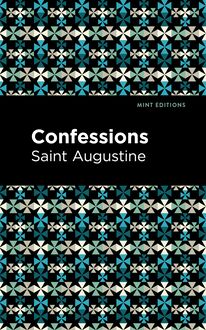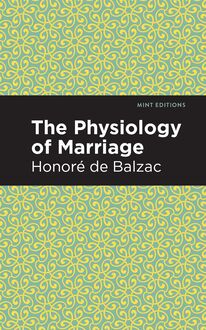-
 Univers
Univers
-
 Ebooks
Ebooks
-
 Livres audio
Livres audio
-
 Presse
Presse
-
 Podcasts
Podcasts
-
 BD
BD
-
 Documents
Documents
-
- Cours
- Révisions
- Ressources pédagogiques
- Sciences de l’éducation
- Manuels scolaires
- Langues
- Travaux de classe
- Annales de BEP
- Etudes supérieures
- Maternelle et primaire
- Fiches de lecture
- Orientation scolaire
- Méthodologie
- Corrigés de devoir
- Annales d’examens et concours
- Annales du bac
- Annales du brevet
- Rapports de stage
La lecture à portée de main
Vous pourrez modifier la taille du texte de cet ouvrage
Découvre YouScribe en t'inscrivant gratuitement
Je m'inscrisDécouvre YouScribe en t'inscrivant gratuitement
Je m'inscrisEn savoir plus
Vous pourrez modifier la taille du texte de cet ouvrage
En savoir plus

Description
After receiving news that her closest brother has been shot and killed while fighting in the Civil War, Mary Cabot is distraught. Having lost the majority of her family, Mary is left feeling alone and helpless. She seeks solace in the church, her neighbors, and friends, but is unable to find the comfort she needs. Becoming more reserved and losing her faith, Mary is relieved when her widowed aunt, Winnifred, and young cousin from Kansas decide to visit her in Massachusetts. As the women strengthen their bond and share conversations on their trauma, Winniefred offers a new perspective, describing her understanding and vision of heaven. Despite its divergence from the traditional Christian idea of the afterlife, Mary begins to heal, unaware that more hardships are around the corner. First published over one-hundred and fifty years ago in 1868, The Gates Ajar established author Elizabeth Stuart Phelps’ career, earning her fame and recognition for her emotional and reflective spiritualist novel. Inspired by her own experience of losing loved one to the Civil War, Phelps wrote The Gates Ajar to assuage the pain of death in ways the Christian church was not providing. Quickly rising to fame, The Gates Ajar sold thousands of copies and inspired a new vision of heaven that really resonated with its audience, leading to references in music, literature, and even floral arrangements. With sympathetic characters, a relatable plot, and gorgeous imagery, The Gates Ajar remains to stimulate modern readers and addresses timeless topics that remain approachable and relevant. This edition of The Gates Ajar by Elizabeth Stuart Phelps features an eye-catching new cover design and is presented in a font that is both modern and readable. With these accommodations, this edition is accessible and appealing to contemporary audiences, restoring The Gates Ajar to modern standards while preserving the original intelligence and impact of Elizabeth Stuart Phelps’ work.
Sujets
Informations
| Publié par | Mint Editions |
| Date de parution | 21 mai 2021 |
| Nombre de lectures | 0 |
| EAN13 | 9781513284941 |
| Langue | English |
| Poids de l'ouvrage | 1 Mo |
Informations légales : prix de location à la page 0,0400€. Cette information est donnée uniquement à titre indicatif conformément à la législation en vigueur.
Extrait
The Gates Ajar
Elizabeth Stuart Phelps
The Gates Ajar was first published in 1868.
This edition published by Mint Editions 2021.
ISBN 9781513279923 | E-ISBN 9781513284941
Published by Mint Editions ®
minteditionbooks .com
Publishing Director: Jennifer Newens
Design & Production: Rachel Lopez Metzger
Project Manager: Micaela Clark
Typesetting: Westchester Publishing Services
C ONTENTS I II III IV V VI VII VIII IX X XI XII XIII XIV XV XVI
I
O ne week; only one week to-day, this twenty-first of February.
I have been sitting here in the dark and thinking about it, till it seems so horribly long and so horribly short; it has been such a week to live through, and it is such a small part of the weeks that must be lived through, that I could think no longer, but lighted my lamp and opened my desk to find something to do.
I was tossing my paper about,—only my own: the packages in the yellow envelopes I have not been quite brave enough to open yet,—when I came across this poor little book in which I used to keep memoranda of the weather, and my lovers, when I was a school-girl. I turned the leaves, smiling to see how many blank pages were left, and took up my pen, and now I am not smiling any more.
If it had not come exactly as it did, it seems to me as if I could bear it better. They tell me that it should not have been such a shock. “Your brother had been in the army so long that you should have been prepared for anything. Everybody knows by what a hair a soldier’s life is always hanging,” and a great deal more that I am afraid I have not listened to. I suppose it is all true; but that never makes it any easier.
The house feels like a prison. I walk up and down and wonder that I ever called it home. Something is the matter with the sunsets; they come and go, and I do not notice them. Something ails the voices of the children, snowballing down the street; all the music has gone out of them, and they hurt me like knives. The harmless, happy children!—and Roy loved the little children.
Why, it seems to me as if the world were spinning around in the light and wind and laughter, and God just stretched down His hand one morning and put it out.
It was such a dear, pleasant world to be put out!
It was never dearer or more pleasant than it was on that morning. I had not been as happy for weeks. I came up from the Post-Office singing to myself. His letter was so bright and full of mischief! I had not had one like it all the winter. I have laid it away by itself, filled with his jokes and pet names, “Mamie” or “Queen Mamie” every other line, and signed
“Until next time, your happy
R OY .”
I wonder if all brothers and sisters keep up the baby-names as we did. I wonder if I shall ever become used to living without them.
I read the letter over a great many times, and stopped to tell Mrs. Bland the news in it, and wondered what had kept it so long on the way, and wondered if it could be true that he would have a furlough in May. It seemed too good to be true. If I had been fourteen instead of twenty-four, I should have jumped up and down and clapped my hands there in the street. The sky was so bright that I could scarcely turn up my eyes to look at it. The sunshine was shivered into little lances all over the glaring white crust. There was a snow-bird chirping and pecking on the maple-tree as I came in.
I went up and opened my window; sat down by it and drew a long breath, and began to count the days till May. I must have sat there as much as half an hour. I was so happy counting the days that I did not hear the front gate, and when I looked down a man stood there,—a great, rough man,—who shouted up that he was in a hurry, and wanted seventy-five cents for a telegram that he had brought over from East Homer. I believe I went down and paid him, sent him away, came up here and locked the door before I read it.
Ph œ be found me here at dinner-time.
If I could have gone to him, could have busied myself with packing and journeying, could have been forced to think and plan, could have had the shadow of a hope of one more look, one word, I suppose I should have taken it differently. Those two words—“Shot dead”—shut me up and walled me in, as I think people must feel shut up and walled in, in Hell. I write the words most solemnly, for I know that there has been Hell in my heart.
It is all over now. He came back, and they brought him up the steps, and I listened to their feet,—so many feet; he used to come bounding in. They let me see him for a minute, and there was a funeral, and Mrs. Bland came over, and she and Ph œ be attended to everything, I suppose. I did not notice nor think till we had left him out there in the cold and had come back. The windows of his room were opened, and the bitter wind swept in. The house was still and damp. Nobody was there to welcome me. Nobody would ever be * * * *
Poor old Ph œ be! I had forgotten her. She was waiting at the kitchen window in her black bonnet; she took off my things and made me a cup of tea, and kept at work near me for a little while, wiping her eyes. She came in just now, when I had left my unfinished sentence to dry, sitting here with my face in my hands.
“Laws now, Miss Mary, my dear! This won’t never do,—a rebellin’ agin Providence, and singein’ your hair on the lamp chimney this way! The dining-room fire’s goin’ beautiful, and the salmon is toasted to a brown. Put away them papers and come right along!”
II
February 23d
W ho originated that most exquisite of inquisitions, the condolence system?
A solid blow has in itself the elements of its rebound; it arouses the antagonism of the life on which it falls; its relief is the relief of a combat.
But a hundred little needles pricking at us,—what is to be done with them? The hands hang down, the knees are feeble. We cannot so much as gasp, because they are little needles.
I know that there are those who like these calls; but why, in the name of all sweet pity, must we endure them without respect of persons, as we would endure a wedding reception or make a party-call?
Perhaps I write excitedly and hardly. I feel excited and hard.
I am sure I do not mean to be ungrateful for real sorrowful sympathy, however imperfectly it may be shown, or that near friends (if one has them), cannot give, in such a time as this, actual strength, even if they fail of comfort, by look and tone and love. But it is not near friends who are apt to wound, nor real sympathy which sharpens the worst of the needles. It is the fact that all your chance acquaintances feel called upon to bring their curious eyes and jarring words right into the silence of your first astonishment; taking you in a round of morning calls with kid gloves and parasol, and the liberty to turn your heart about and cut into it at pleasure. You may quiver at every touch, but there is no escape, because it is “the thing.”
For instance: Meta Tripp came in this afternoon,—I have refused myself to everybody but Mrs. Bland, before, but Meta caught me in the parlor, and there was no escape. She had come, it was plain enough, because she must, and she had come early, because, she too having lost a brother in the war, she was expected to be very sorry for me. Very likely she was, and very likely she did the best she knew how, but she was—not as uncomfortable as I, but as uncomfortable as she could be, and was evidently glad when it was over. She observed, as she went out, that I shouldn’t feel so sad by and by. She felt very sad at first when Jack died, but everybody got over that after a time. The girls were going to sew for the Fair next week at Mr. Quirk’s, and she hoped I would exert myself and come.
Ah, well:—
“First learn to love one living man,
Then mayst thou think upon the dead.”
It is not that the child is to be blamed for not knowing enough to stay away; but her coming here has made me wonder whether I am different from other women; why Roy was so much more to me than many brothers are to many sisters. I think it must be that there never was another like Roy. Then we have lived together so long, we two alone, since father died, that he had grown to me, heart of my heart, and life of my life. It did not seem as if he could be taken, and I be left.
Besides, I suppose most young women of my age have their dreams, and a future probable or possible, which makes the very incompleteness of life sweet, because of the symmetry which is waiting somewhere. But that was settled so long ago for me that it makes it very different. Roy was all there was.
February 26th
Death and Heaven could not seem very different to a Pagan from what they seem to me.
I say this deliberately. It has been deliberately forced upon me. That of which I had a faint consciousness in the first shock takes shape now. I do not see how one with such thoughts in her heart as I have had can possibly be “regenerate,” or stand any chance of ever becoming “one of the redeemed.” And here I am, what I have been for six years, a member of an Evangelical church, in good and regular standing!
The bare, blank sense of physical repulsion from death, which was all the idea I had of anything when they first brought him home, has not gone yet. It is horrible. It was cruel. Roy, all I had in the wide world,—Roy, with the flash in his eyes, with his smile that lighted the house all up; with his pretty, soft hair that I used to curl and kiss about my finger, his bounding step, his strong arms that folded me in and cared for me,—Roy snatched away in an instant by a dreadful God, and laid out there in the wet and snow,—in the hideous wet and snow,—never to kiss him, never to see him any more! * * * *
He was a good boy. Roy was a good boy. He must have gone to Heaven. But I know nothing about Heaven. It is very far off. In my best and happiest days, I never liked to think of it. If I were to go there, it could do me no good, for I should not see Roy. Or if by chance I should se
-
 Univers
Univers
-
 Ebooks
Ebooks
-
 Livres audio
Livres audio
-
 Presse
Presse
-
 Podcasts
Podcasts
-
 BD
BD
-
 Documents
Documents
-
Jeunesse
-
Littérature
-
Ressources professionnelles
-
Santé et bien-être
-
Savoirs
-
Education
-
Loisirs et hobbies
-
Art, musique et cinéma
-
Actualité et débat de société
-
Jeunesse
-
Littérature
-
Ressources professionnelles
-
Santé et bien-être
-
Savoirs
-
Education
-
Loisirs et hobbies
-
Art, musique et cinéma
-
Actualité et débat de société
-
Actualités
-
Lifestyle
-
Presse jeunesse
-
Presse professionnelle
-
Pratique
-
Presse sportive
-
Presse internationale
-
Culture & Médias
-
Action et Aventures
-
Science-fiction et Fantasy
-
Société
-
Jeunesse
-
Littérature
-
Ressources professionnelles
-
Santé et bien-être
-
Savoirs
-
Education
-
Loisirs et hobbies
-
Art, musique et cinéma
-
Actualité et débat de société
- Cours
- Révisions
- Ressources pédagogiques
- Sciences de l’éducation
- Manuels scolaires
- Langues
- Travaux de classe
- Annales de BEP
- Etudes supérieures
- Maternelle et primaire
- Fiches de lecture
- Orientation scolaire
- Méthodologie
- Corrigés de devoir
- Annales d’examens et concours
- Annales du bac
- Annales du brevet
- Rapports de stage




















